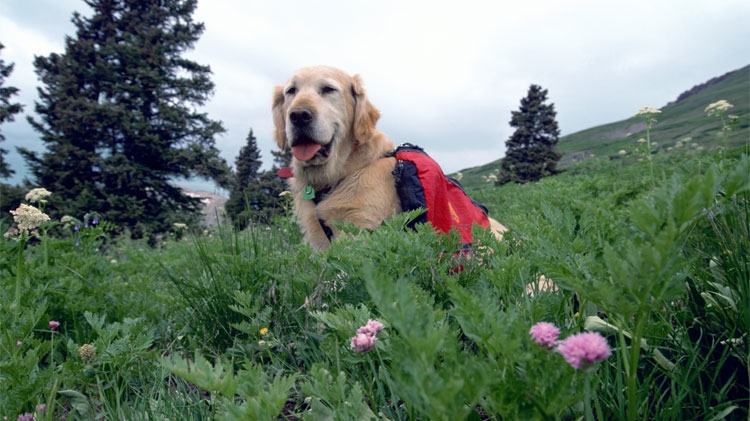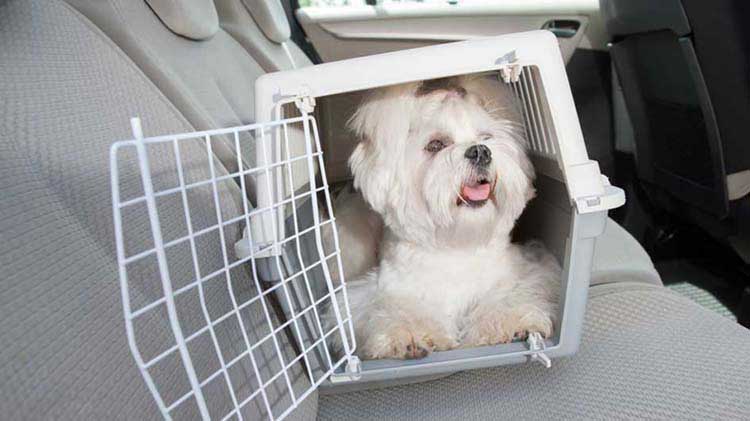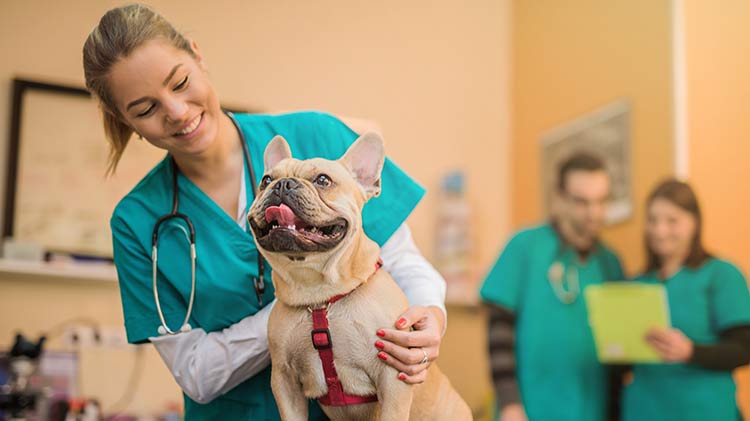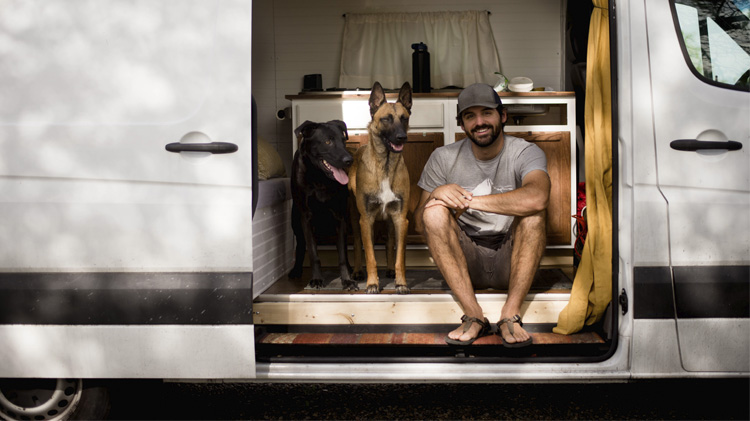Safety tips for camping and hiking with your dog
How to plan a hike or camping trip with your best friend.
There's nothing like enjoying the great outdoors and spending time outside with your sidekick, but it does require a bit of extra planning. Whether you're taking your dog for a hike or a cross-country camping adventure, read these tips first.
Are dogs allowed where you want to go?
First things first: Check the rules where you're headed. We always recommend checking the website where you're going to read more specifics, but these general guidelines can get you started.
- National parks and forests tend to allow dogs but they have restrictions around where they can go.
- Planning on visiting a state park? Some states don't allow dogs at all, while others allow dogs at most parks.
- A good rule of thumb: Keep your dog on a leash no longer than six feet long. This helps protect the resident wildlife — and your dog from chasing a scent and potentially running out of sight.
Consult with your veterinarian before you go
It's always a good idea to check with your veterinarian before taking your dog on a trip. Make sure they're up to date on their immunizations. If your dog has allergies or asthma, you can chat with your veterinarian about how to keep them comfortable. Or, if your dog is a puppy or a senior, learn what precautions you can take to keep them safe and comfortable.
Make sure your dog has updated tags and is wearing them at all times. This can help reunite you and your dog faster if you get separated.
Pack the right camping or hiking gear for your dog
We put together camping safety tips for humans, but bringing your pet requires a bit more planning. You'll want to pack:
- A collapsible water bowl
- Extra water (or water bottles that you can refill if the area where you're going has drinking/potable water)
- Extra treats and dog food
- An extra leash or harness
- Extra poop bags. Even though you're headed into nature, make sure you and your pet leave no trace.
- Pet-friendly bedding/blankets/towels
- Your pet's prescriptions, plus any preventative medication (e.g. tick medication)
- A pet first aid kit that includes absorbent gauze, tweezers and antibiotic ointment
And don't forget to pack your own emergency kit so that you can be better prepared in the event of an emergency.
Keep your dog secure at all times
Safe is better than sorry — keep your dog on a leash at all times. We put together a guide on how to find the right leash or harness for your dog, but outdoor dog activities warrant extra consideration. For example, you may want to leave the retractable leash at home and bring a sturdy nylon version to attach to your dog's collar or harness.
Dogs tend to stir up trouble if they're bored. If you're busy setting up camp or preparing dinner for yourself, keep your dog in a crate and give them something fun to do (we love puzzle toys, for example).
Are you camping with your dog? Instead of leaving them outside, bring them into the tent or RV with you at night.
Protect your dog from overheating — and don't forget their paws
How much time should a dog spend outside? It depends, but keep in mind:
- The temperature where you're going — and is there shade? Walking on hot pavement or a rocky trail can burn the bottom of your dog's paws.
- Your dog's expected activity level
- Your dog's own preferences and ability levels
You know your dog better than anyone, but follow these tips:
- Keep them in the shade as much as possible during the midday. Save your most strenuous activity for the morning or early evening.
- If you're going camping, comb the area for hazards to your dog's paws. Clear the area of any sharp objects.
- Give them frequent water breaks (collapsible bowls are great for hydration on the go).
- Watch for signs of overheating, including:
- Excessive panting
- Uncoordinated movement
- Vomiting/diarrhea
PetMD put together a great guide detailing the signs of heatstroke in dogs, including what to do if they start to exhibit the signs of being too hot.
Protect your pet for all of life's adventures
You do your best to protect your dog, but new and unexpected illnesses and injuries can happen anytime, anywhere. Talk to your State Farm® agent about medical insurance for your dog, or get a free, no-obligation quote online.
Terms and conditions apply. See the policy at Trupanion.com/Policy.




